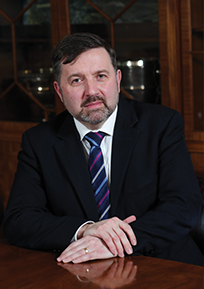Northern Ireland calls for health and care spending boost
 In the build-up to the Northern Ireland Budget, which is expected this month, Mr Swann (pictured) said £492m would be required to keep services at their current level. A further £169m is needed to meet the commitments in New decade, new approach, the agreement that led to the re-establishment of the Stormont Assembly and executive.
In the build-up to the Northern Ireland Budget, which is expected this month, Mr Swann (pictured) said £492m would be required to keep services at their current level. A further £169m is needed to meet the commitments in New decade, new approach, the agreement that led to the re-establishment of the Stormont Assembly and executive.
The service maintenance funding would include an estimated £170m needed to achieve pay parity. Health unions accepted a deal on pay parity and safe staffing in February.
The New decade, new approach money would be used to bear down on waiting lists and to enhance and reform social care – increasing staff numbers and their pay. It would cost £50m to reduce waiting times and meet the agreement’s commitment that at the end of September no-one will have been waiting for more than a year. In the current year, revenue funding stands at around £5.7bn.
The minister said: ‘There are deep-seated problems across the health and social care system that will take years to put right. This will require major investment on a sustained basis – along with transformation reforms.’
He insisted that if only the £492m needed to maintain services was received, it meant ‘another year of frustration and falling short of public expectations – with gaps in provision and unmet need growing’.
Mr Swann said the latest performance figures for emergency departments (EDs) were ‘simply not good enough’, though he recognised there was no quick fix to the problem. He has written to trust chief executives asking for a detailed assessment of the situation in their emergency departments.
A clinically led review of transforming urgent and emergency care was ongoing and an initial report was expected shortly. There was an overall drop in attendances at type 1 (major) EDs in December, but only 55% of these patients were treated and discharged, or admitted within four hours (62% in December 2018).
Related content
The value masterclass shares examples of organisations and systems that have pursued a value-driven approach and the results they have achieved.
This webinar series offers colleagues of ICS organisations the opportunity to discuss common priorities, challenges, and successes within their field.